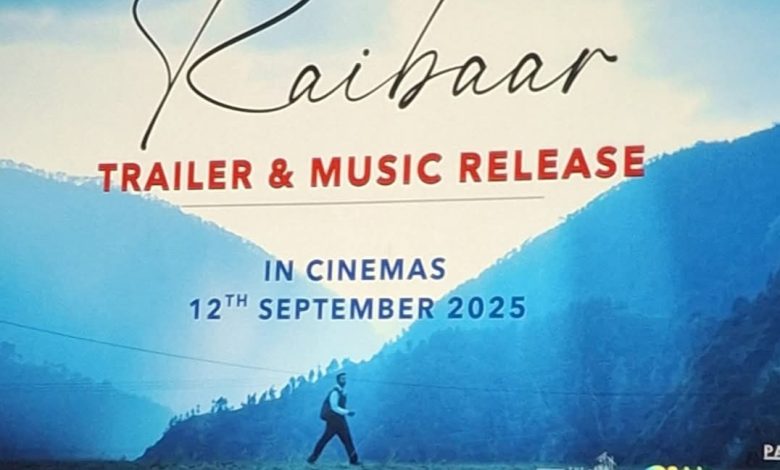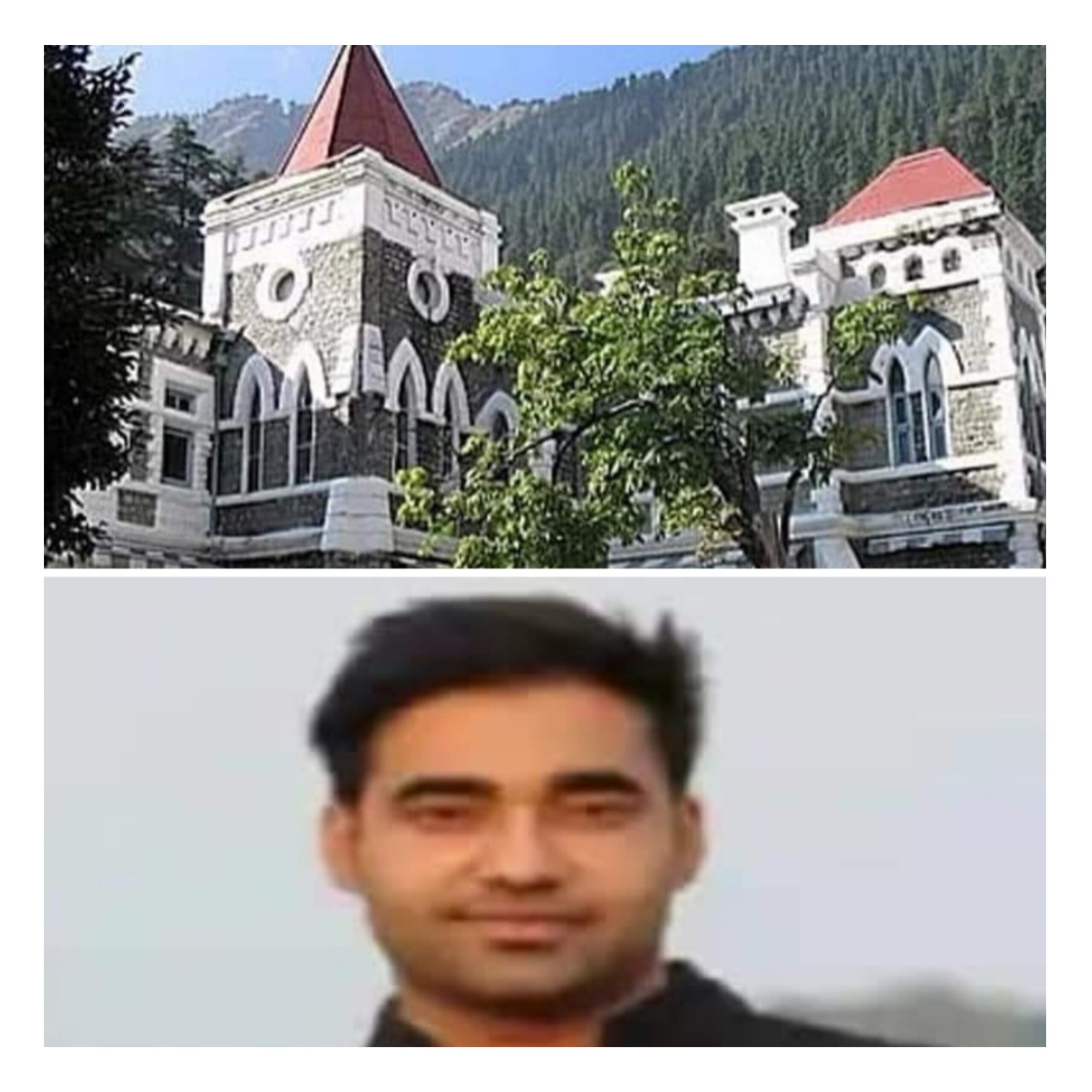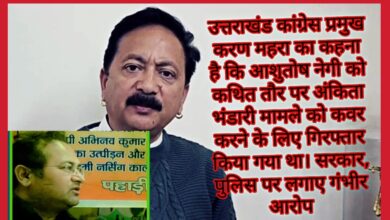RAIBAAR: A MESSAGE OF FORGIVENESS!





– By Suresh Nautiyal Greenananda
Except Jagwal, the very first Garhwali native language film released in May 1983, I have hardly written on a particular Uttarakhandi film. But this time, I am writing a few introductory things about a new genre film, Raibaar—message in the Garhwali language!
I am writing because I attended a programme about the film on 30 August 2025 at Garhwal Bhavan New Delhi. It was organised to release a trailer of Raibaar, which is scheduled to be released on 12 September this year in the theatres in Uttarakhand and the Delhi-NCR.
Teasers of two songs of the film were also released on the occasion.
More than 300 people graced the ceremony punctuated by brief garland and bouquet formalities. Of course, brief speeches were made on the occasion by the director, the producers and a few others about the film and about the travails in making the film in a geographically-difficult area of Uttarakhand.
Raibaar has been produced by Kinoscope Films & Vortex Echo Productions jointly. Kinoscope was founded to praise broad variety of cinematic works, to promote and support film-makers, and to enhance appreciation and understanding of art.
The film is directed by an enthusiastic young director, Shishir Uniyal; and produced by Bhagat Singh Saini, Parveen Saini, Balraj Jangra, and Shishir Uniyal.
The co-producers of the film include – Babita Agrawal, Ipsita Manna, Ishita Manna, Rakesh Pokhriyal, Shashi Pokhriyal, and Subhash Chamoli.
This means it is a big collaborative endeavour.
The film is inspired by a Russian story but eventually was woven around the experiences Shishir and Bhagat gained during their several visits to Garhwal using the public transport systems like the buses, the jeep taxies, and even during the stop-overs at the chai tiparis (tea kiosks).
The dialogues were contributed by Dinesh Bijalwan and Bhagat Singh Saini.
Screenplay was done by Bhagat Singh Saini. T
The cinematography has been done by Dharmendra Singh Sisodiya.
The lyrics were contributed by Satish Kaleshwari and music was composed by Rajendra Chauhan, though the music director is Vibhu Kashiv.
And one the most challenging thing, editing was done by Mohammad Tariq and Shishir Uniyal himself.
Raibaar is about a journey of a mountain village postman, Pushkar Singh Bisht, who yearns for a life beyond the mountains but is held back by awe and fear of his stern father. When he discovers an undelivered apology letter from a deceased man to his lost son, pleading for forgiveness, Pushkar becomes restless, and sets out to deliver it.
The journey to the city and the encounter it brings, make him understand that forgiveness is not about forgetting, but freeing oneself.
True, a raibaar or a message can serve as a synonym or at least as a vehicle for forgiveness because forgiveness is not only an inner act but also something transcendental — representing a bridge, a way of restoring relationships even if lost.
The cast of the film includes actors like: Sunil Singh (in the lead role as Pushkar), the NSD trained veteran actor Shrish Dobhal, famous Garhwali actor Suman Gaur, versatile actor Rajesh Naugain, Mohit Ghildiyal, Dharmendra Chauhan, Mohit Thapliyal, Rakesh Arya, Indira Prasad Uniyal, veteran actor and theatre director Hari Semwal, Savitri Mamgain, Bharat Singh Bisht, Anju Purohit, Aarav Kemani, Shrishti Rawat, Sushil Purohit, and Shreya Pokhriyal.
The film was mainly shot in the village of Pipalkoti located in the district of Chamoli, Uttarakhand.
The media partners of the film include India Bhoomi, Advig Media, and UK Nation News.
We do not know yet whether the film will be greeted by the audience; but one thing is for sure that it is a distinct genre film in the hullabaloo of the mediocre masala Garhwali films.
Therefore, Raibaar, for now, gives hope that floats on the blue oceans and flies in the pure blue skies.
The team has worked hard to bring a placid and simple story-line to life. They deserve a pat or two for their will to create a film in a marginalised regional language to be extinct sooner than later as per the UNESCO reports.
It is also important to note that hardly any other film-maker of the Garhwali films ever thought of marking up a simple idea by converting it into a full-length feature film.
In fact, great films are made of the simplest of ideas.
Internationally, great films woven around simple stories include Bicycle Thieves (1948), a neo-realist Italian masterpiece about a man searching for his stolen bike; 12 Angry Men (1957), an American classic jury drama about deciding a murder case; The Shawshank Redemption (1994), a story of friendship and hope set in a prison based on a Stephen King story; Parasite (2019), a South Korean black comedy thriller about two families from different social classes whose lives become entangled; and The Kid Detective (2020) is a more recent example from Canada, which features a former child detective who is now a jaded adult and gets a chance to solve a real, adult murder case, which is the simple core of the plot.
Most of these films with simple storylines won awards and are still fresh in our memories.
Undoubtedly, Raibaar is in a distinct genre, however, it is impossible to make any predictions about the success of the film, waiting to be released in the theatres quite soon!


गढ़वाल भवन में नई गढ़वाली फिल्म का पोस्टर, गीत और ट्रेलर लॉन्च





